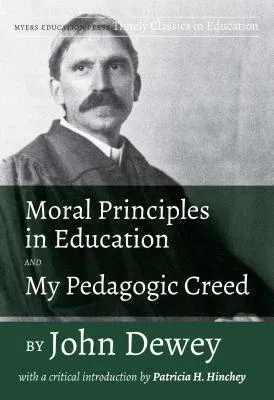John Dewey
(Author)Moral Principles in Education and My Pedagogic Creed by John Dewey: With a Critical Introduction by Patricia H. HincheyPaperback, 24 October 2018

Qty
1
Turbo
Ships in 2 - 3 days
In Stock
Free Delivery
Cash on Delivery
15 Days
Free Returns
Secure Checkout

Part of Series
Timely Classics in Education
Part of Series
Myers Education Press's Timely Classics in Education Series
Part of Series
Education
Print Length
120 pages
Language
English
Publisher
Myers Education Press
Date Published
24 Oct 2018
ISBN-10
1975501462
ISBN-13
9781975501464
Description
Product Details
Author:
Book Format:
Paperback
Country of Origin:
US
Date Published:
24 October 2018
Dimensions:
23.88 x
16 x
2.79 cm
ISBN-10:
1975501462
ISBN-13:
9781975501464
Language:
English
Pages:
120
Publisher:
Series:
Weight:
680.39 gm